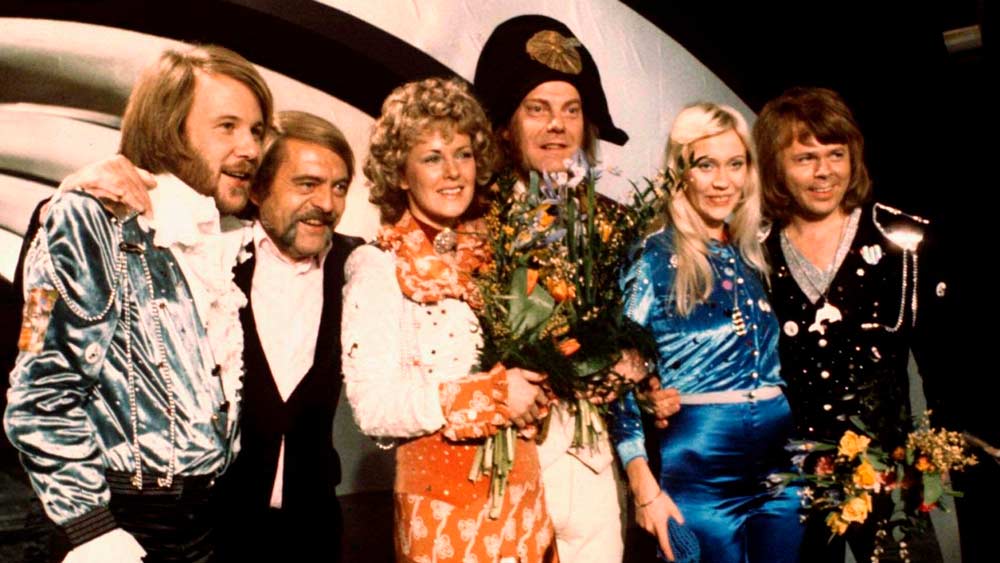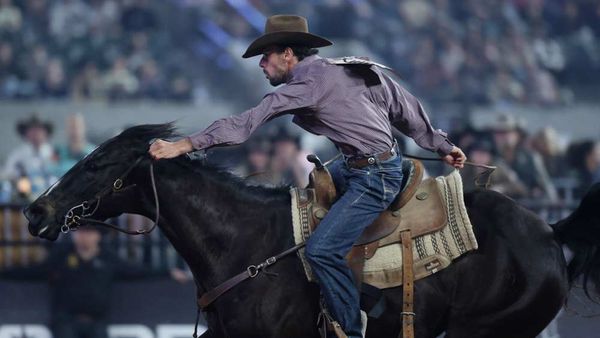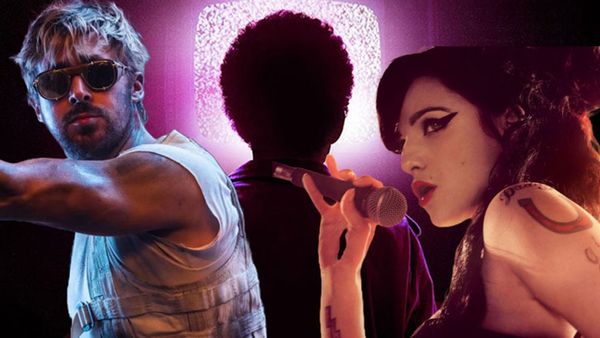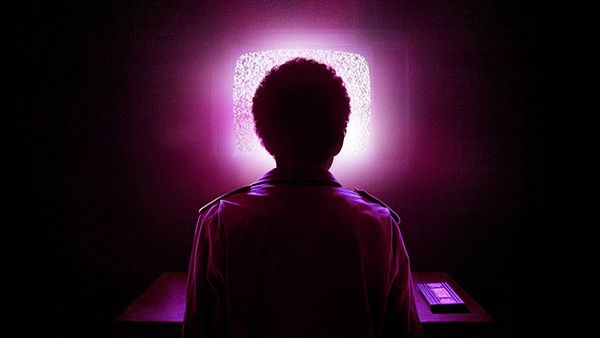June 17, 2013
Green Cards & Marriage Vows :: The Hot Button Issues of 'I Do'
Robert Nesti READ TIME: 11 MIN.
No two issues have been as hotly covered the past two weeks than immigration and gay marriage, both subjects of pending legislation and judgment involving two branches of the federal government. And while the Defense of Marriage Act is never mentioned in "I Do," it casts a long shadow on this bittersweet indie about those hot button issues. The film, now in limited release and On Demand, concerns Jack Edwards (played by David W. Ross), an out British national in serious need of a green card to avoid deportation.
In his 30s, Jack has made a life in the States as a fashion photographer in New York since emigrating at the age of 17, where he was raised by his older brother. When his brother is killed in a freak accident, Jack becomes the surrogate spouse to his sister-in-law, Mya Edwards (Alicia Witt), and dad to her daughter, Tara (Jessica Brown). But when INS refuses his visa extension, his life is thrown into turmoil. His solution? To marry his 'bestie' - a lesbian co-worker Alison Federman (Jamie-Lynn Sigler) - to get a green card. Complications arise when Jack becomes seriously involved with a Spanish architect Mano Alfaro (Maurice Compte), putting in jeopardy the delicate legal deception to keep him in the States.
Defying the odds
Reviewing the film for this website, Kevin Taft wrote, "Defying the odds, 'I Do' is one of the few 'mainstream" gay films of recent years that gets it right. With good actors, a nice script, and lovely direction, "I Do" doesn't have the feel of a typical gay film that usually feels thrown together with a director's best friends and filmed in their own apartments. 'I Do' looks like a professional Hollywood production complete with glossy stylized cinematography by David Maurice Gil and professional actors that know how to play it realistically."
Click to read the full review.
Ross also conceived the film nearly a decade ago as a light romantic farce with a decidedly gay bent; the sort that a braver Hollywood might make with, say, Tom Hardy as Jack, Natalie Portman as Alison and Gael Garc�a Bernal as the hot Spanish architect. But as he was developing the project, Ross became involved with groups opposing Prop 8 who employed him to take photographs of their rallies.
"I was the official photographer for the events," Ross explained on a recent Sunday morning from his LA home where he talked casually over his morning coffee. "And I would look out in the crowd and see these two women with kids or two men with kids, and I realized I couldn't sleep at night if I wrote this script and turned this issue into something stupid. That was the turning point."
Change in focus
With the change in focus, "I Do" became his passion project - one that dealt with the life-altering choice that his lead character must make when faced with possible deportation. Can he leave the country and family he loves for the man he loves?
"I finally got it through my thick skull that this is the decision that many bi-national couples have to make every day. They have to make these heartbreaking decisions. Jack has to be with the person he loves, but to do so he has to leave the family he loves. This is happening every day in America. We hear stories all the time of people who can't leave the country when their family member dies or they're missing their children growing up because they can't leave the country, because if they left, they couldn't get back in again. Or those partners that have to leave the country to be with the person they love. What's happening is that Americans are ex-patriating themselves because of DOMA. They have to leave the country that they were born in, America, leave the family, because of DOMA.
"A lot of the people I know fighting in this situation are so brave, putting themselves in the firing lane, petitioning the INS or speaking out on television. They're saying, 'yeah. We're married and we're gay; and we know that the law isn't there yet, but we are still going to petition for our rights.'"
What got him a bit heated was mention of the amendment removed from the Immigration bill in the Senate recently, which removed a provision that would give LGBT foreign nationals the same rights as those who are straight.
"It's beyond belief that again LGBT rights are dealt with in an inhuman way. America is all about family and it all about freedom, but here you have a bill and a group of people that are tearing families apart. It just doesn't make sense to me. I don't know the statistics exactly, but we know there are 40,000 bi-national couples of which 40% have children. Now I am not a particularly intelligent person, but I can do the math, and 40% of 40,000 couples we are dealing with 20-40,000 children that are in families that can be torn apart at any time because of this law. And nobody humanizes the LGBT experiences - we become a talking point. And what I wanted to do with the film is humanize what is often used by people as a talking point or a political argument. We have to humanize our experience to let people know that this is hurting real human beings."
Too serious?
But with the change from comedy, Ross realized his script was, well, too serious. "I wanted to make a film like 'Notes of a Scandal' or T'he Hours,'" he said with a laugh. "Then everyone told me I needed to have humor in it. You have to have those lighter breaks. We brought Glenn Gaylord (who directed the film) on in pre-production, and he worked a few weeks with the script. His suggestion: could I please put some humor in it? So we basically went through scene-by-scene, and managed to get in some situational comedy. Glen and I have very different tastes in comedy, but I am very happy how it turned out."
Then a funny thing happened as the pieces fell into place for the film, Ross decided to play Jack.
At first he hadn't planned on taking the role: a bankable name had signed on, at least in theory. "But I couldn't get the actor in mind to sign a letter of intent, and without this actor I couldn't get the money people to commit. This went on for a year, then I realized that that gay marriage was going to be a big issue in then upcoming election. People told me I was crazy, that it was the economy, stupid. But I felt an urgency to getting the project done. We needed to get the film out there. And now it is coming out in theaters and VOD the same month that the Supreme Court is ruling on DOMA. And we did make it."
’A pop star, darling’
Not that performing was something new for strikingly hunky screenwriter: at 19 he became part of the British boy band group Bad Boys Inc, who had their 15-minutes of fame in the mid-1990s with three hit singles.
"I was a pop star, darling," he joked. "Calling me a singer from being in a boy band is a bit of a stretch, don't you think?
"No. I was famous for no good reason," he recalls. I was plucked from obscurity and put into this group. But I actually wanted to do music - I was pursuing doing house music, underground white label house music is what I was interested in doing; then I was on the cover of magazines at an age when I should have been in college. And I wasn't happy. My mother had died just a year before that and I was looking at bigger things in life. I had a great time and I know our fans appreciated us; but I was miserable. And the first opportunity I had to leave I took it, and I traveled the world and ended up in America, which was great."
’Looked great in cars’
Once settled in the States, he pursued various endeavors, including photography and modeling, both in print and in commercials. ("For some reason, I looked great in cars.") Acting came when he took the lead role in Sundance Audience Award-winning gay indie: "Quincea�era" ("Echo Park LA") in 2006, which gave him the confidence to take the role of Jack in "I Do."
"I never thought I could remotely play the role," he confessed. "Then it became clear that I needed to do something in my career that would kick it up a notch, so I just felt it was the right decision for me. I am not really sure I would be dealing with this situation very well if someone else had played Jack. I would be like, 'Crap. Why didn't I do that myself?'"
It proved to be a smart move. Both Ross and the film have been praised by critics and festivals since the film premiered nearly a year ago at LA's Outfest. "As the movie's star, screenwriter and producer David W Ross is certainly one of the more interesting, not to mention handsome, figures to have emerged in gay cinema in recent years," wrote DNA magazine. As the film played the festival circuit, it accumulated numerous accolades, including awards from festivals in Palm Springs, Long Beach, Pittsburgh, Atlanta and Seattle. Last summer Ross was awarded the "Rising Film Star Award" from Philadelphia's Qfest; more recently he won the same honor from the Miami Gay & Lesbian Film Festival 2013.
Shirtless too often?
One critic even complained that the buff actor was shirtless for far too much of the film, which only made Ross laugh. "Gay audiences said, no it's not off enough! I very rarely wear a shirt at home. I don't have one on now. And also I was sweating a lot because my metabolism being so high, so they couldn't keep a microphone stuck to me. That's another reason, but it is a terrible excuse for me to be shirtless all the time."
Not that looking good came easy. "I went to boot camp for six weeks. I was dying. I told my producer that we are making a gay film, but clearly someone has to take their shirt off at some time and clearly it should be me. And I need to get to the gym. It went downhill in post-production when it got very stressful. Lots of donuts were eaten."
Coming Out
Though he knew he was gay a decade ago, Ross didn't come out professionally until 2011. And coming to terms with his sexuality was a long struggle. "In my 20s, I totally lost my mind. It was difficult. But I read this book called "The Velvet Rage," and that really helped me. It is written by a psychologist who looked at a lot of gay guys in relationships and not in relationships, and noticed that there was a psychological pattern; which helped me come to terms to being gay, which took a long time. When I came out in 2011, which was hilarious because I'm not exactly a huge star. Attitude Magazine gave me four pages, which was kind of cool."
What he learned from the book is something he textured into his characterization of Jack. "The subtitle of the book is 'Growing up gay in a straight man's world.' We are psychologically conditioned from a young age to see the world through straight eyes. Our culture is obsessed with weddings and marriage. Our culture is obsessed with romantic love, images of romantic love; and those images are generally straight. So as a gay person, you're growing up in a straight-centric world, you still have the same wants. You still want to create children and have a family; and here's Jack living a part of what he wanted, but never thought he could have it because he's gay. So part of it is guilt, part of it is living out this life he could only dream of, but is suddenly happening; but only came about because his brother is killed."
Barely a ripple
While he jokes that his coming out barely made a ripple in the media, Ross is quick to point out that it was a decision that came with some uncertainty. "I honestly feel that for someone like me who is not a big star coming out is a big risk in terms of career. That it could be really difficult for me because all I may do is gay roles. Where it is fine for actor with million of dollars in the bank, or are on a hit TV show or been on a hit TV show; they already have a fan base that won't give a shit. But for someone like me - a lot of us are out there - it's a bit of a struggle. I'm up for it, and if I play gay characters for the rest of my career, I'd be happy with that. But I would love to see audiences see me as an actor, not just a gay actor.
"I don't know whether or not I have to be the gay Woody Allen and I put myself in every film in order to have a career. All I can say is that I'm excited about the future."
"I Do" is in limited release in theaters; it is also available on Video on Demand. For more information on how to see the film, visit the film's website.
Robert Nesti can be reached at [email protected].





